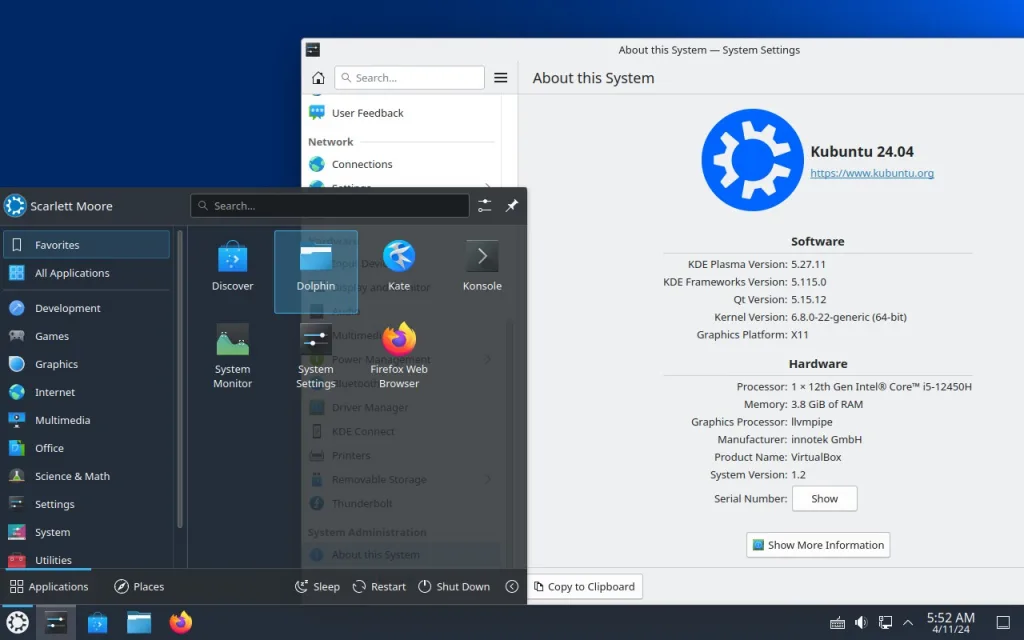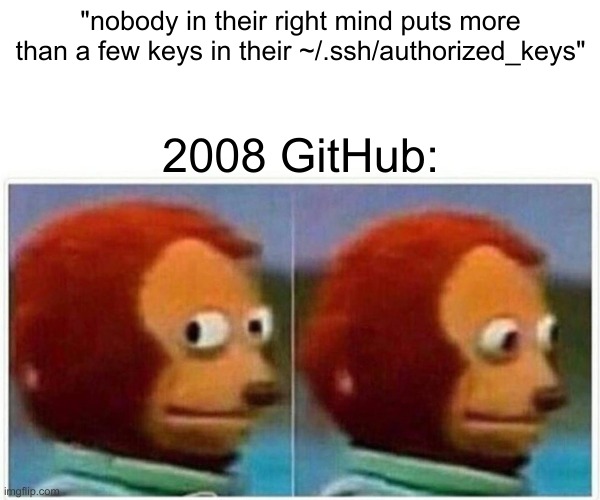
Getting the
Belgian eID to work on Linux
systems should be fairly easy, although some people do struggle with it.
For that reason, there is a lot of third-party documentation out there
in the form of blog posts, wiki pages, and other kinds of things.
Unfortunately, some of this documentation is simply
wrong. Written by
people who played around with things until it kind of worked, sometimes
you get a situation where something that used to work in the past (but
wasn't
really necessary) now stopped working, but it's still added to
a number of locations as though it were the gospel.
And then people follow these instructions and now things don't work
anymore.
One of these revolves around
OpenSC.
OpenSC is an open source smartcard library that has support for a
pretty
large
number of smartcards, amongst which the Belgian eID. It provides a
PKCS#11 module as well as a
number of supporting tools.
For those not in the know, PKCS#11 is a standardized C API for
offloading cryptographic operations. It is an API that can be used when
talking to a hardware cryptographic module, in order to make that module
perform some actions, and it is especially popular in the open source
world, with support in
NSS,
amongst others. This library is written and maintained by mozilla, and
is a low-level cryptographic library that is used by Firefox (on all
platforms it supports) as well as by Google Chrome and other browsers
based on that (but only on Linux, and as I understand it, only for
linking with smartcards; their BoringSSL library is used for other
things).
The official eID software that we
ship through
eid.belgium.be,
also known as "BeID", provides a PKCS#11 module for the Belgian eID, as
well as a number of support tools to make interacting with the card
easier, such as the "eID viewer", which provides the ability to read
data from the card, and validate their signatures. While the very first
public version of this eID PKCS#11 module was originally based on
OpenSC, it has since been reimplemented as a PKCS#11 module in its own
right, with no lineage to OpenSC whatsoever anymore.
About five years ago, the Belgian eID card was renewed. At the time, a
new physical appearance was the most obvious difference with the old
card, but there were also some technical, on-chip, differences that are
not so apparent. The most important one here, although it is not the
only one, is the fact that newer eID cards now use a
NIST
P-384 elliptic curve-based private
keys, rather than the
RSA-based
ones that were used in the past. This change required some changes to
any PKCS#11 module that supports the eID; both the BeID one, as well as
the OpenSC card-belpic driver that is written in support of the Belgian
eID.
Obviously, the required changes were implemented for the BeID module;
however, the OpenSC card-belpic driver was not updated. While I did do
some preliminary work on the required changes, I was unable to get it to
work, and eventually other things took up my time so I never finished
the implementation. If someone would like to finish the work that I
started, the
preliminal patch that I
wrote
could be a good start -- but like I said, it doesn't yet work. Also,
you'll probably be interested in
the official
documentation
of the eID card.
Unfortunately, in the mean time someone added the Applet 1.8 ATR to the
card-belpic.c file,
without also implementing the required changes to
the driver so that the PKCS#11 driver actually supports the eID card.
The result of this is that if you have OpenSC installed in NSS for
either Firefox or any Chromium-based browser, and it gets picked up
before the BeID PKCS#11 module, then NSS will stop looking and pass all
crypto operations to the OpenSC PKCS#11 module rather than to the
official eID PKCS#11 module, and things will not work at all, causing a
lot of confusion.
I have therefore taken the following two steps:
- The official eID packages now
conflict
with the OpenSC PKCS#11 module. Specifically only the PKCS#11 module,
not the rest of OpenSC, so you can theoretically still use its tools.
This means that once we release this new version of the eID software,
when you do an upgrade and you have OpenSC installed, it will remove
the PKCS#11 module and anything that depends on it. This is normal
and expected.
- I have filed a pull
request against OpenSC
that removes the Applet 1.8 ATR from the driver, so that OpenSC will
stop claiming that it supports the 1.8 applet.
When the pull request is accepted, we will update the official eID
software to make the conflict versioned, so that as soon as it works
again you will again be able to install the OpenSC and BeID packages at
the same time.
In the mean time, if you have the OpenSC PKCS#11 module installed on
your system, and your eID authentication does not work, try removing it.

 Armadillo is a powerful
and expressive C++ template library for linear algebra and scientific
computing. It aims towards a good balance between speed and ease of use,
has a syntax deliberately close to Matlab, and is useful for algorithm
development directly in C++, or quick conversion of research code into
production environments. RcppArmadillo
integrates this library with the R environment and language and is
widely used by (currently) 1135 other packages on CRAN, downloaded 33.7 million
times (per the partial logs from the cloud mirrors of CRAN), and the CSDA paper (preprint
/ vignette) by Conrad and myself has been cited 579 times according
to Google Scholar.
Yesterday s release accommodates reticulate by
suspending a single test that now croaks creating a reverse-dependency
issue for that package. No other changes were made.
The set of changes since the last CRAN release follows.
Armadillo is a powerful
and expressive C++ template library for linear algebra and scientific
computing. It aims towards a good balance between speed and ease of use,
has a syntax deliberately close to Matlab, and is useful for algorithm
development directly in C++, or quick conversion of research code into
production environments. RcppArmadillo
integrates this library with the R environment and language and is
widely used by (currently) 1135 other packages on CRAN, downloaded 33.7 million
times (per the partial logs from the cloud mirrors of CRAN), and the CSDA paper (preprint
/ vignette) by Conrad and myself has been cited 579 times according
to Google Scholar.
Yesterday s release accommodates reticulate by
suspending a single test that now croaks creating a reverse-dependency
issue for that package. No other changes were made.
The set of changes since the last CRAN release follows.
 Years ago, at what I think I remember was DebConf 15, I hacked for a while
on debhelper to
Years ago, at what I think I remember was DebConf 15, I hacked for a while
on debhelper to


 Like each month, have a look at the work funded by
Like each month, have a look at the work funded by  I work from home these days, and my nearest office is over 100 miles away, 3 hours door to door if I travel by train (and, to be honest, probably not a lot faster given rush hour traffic if I drive). So I m reliant on a functional internet connection in order to be able to work. I m lucky to have access to
I work from home these days, and my nearest office is over 100 miles away, 3 hours door to door if I travel by train (and, to be honest, probably not a lot faster given rush hour traffic if I drive). So I m reliant on a functional internet connection in order to be able to work. I m lucky to have access to  Getting the
Getting the  Now that we are back from our six month period in Argentina, we
decided to adopt a kitten, to bring more diversity into our
lives. Perhaps this little girl will teach us to think outside the
box!
Now that we are back from our six month period in Argentina, we
decided to adopt a kitten, to bring more diversity into our
lives. Perhaps this little girl will teach us to think outside the
box!



 Those of you who haven t been in IT for far, far too long might not know that next month will be the 16th(!) anniversary of the
Those of you who haven t been in IT for far, far too long might not know that next month will be the 16th(!) anniversary of the 
 They're called The Usual Suspects for a reason, but sometimes, it really is Keyser S ze
They're called The Usual Suspects for a reason, but sometimes, it really is Keyser S ze

 Trying to explain analogue clock. It's hard to
explain. Tried adding some things for affordance, and it is
still not enough. So it's not obvious which arm is the hour
and which arm is the minute.
Trying to explain analogue clock. It's hard to
explain. Tried adding some things for affordance, and it is
still not enough. So it's not obvious which arm is the hour
and which arm is the minute.
 The Debian Project Developers will shortly vote for a new Debian Project Leader
known as the DPL.
The DPL is the official representative of representative of The Debian Project tasked with managing the overall project, its vision, direction, and finances.
The DPL is also responsible for the selection of Delegates, defining areas of
responsibility within the project, the coordination of Developers, and making
decisions required for the project.
Our outgoing and present DPL Jonathan Carter served 4 terms, from 2020
through 2024. Jonathan shared his last
The Debian Project Developers will shortly vote for a new Debian Project Leader
known as the DPL.
The DPL is the official representative of representative of The Debian Project tasked with managing the overall project, its vision, direction, and finances.
The DPL is also responsible for the selection of Delegates, defining areas of
responsibility within the project, the coordination of Developers, and making
decisions required for the project.
Our outgoing and present DPL Jonathan Carter served 4 terms, from 2020
through 2024. Jonathan shared his last 

 A short status update of what happened on my side last month. I spent
quiet a bit of time reviewing new, code (thanks!) as well as
maintenance to keep things going but we also have some improvements:
Phosh
A short status update of what happened on my side last month. I spent
quiet a bit of time reviewing new, code (thanks!) as well as
maintenance to keep things going but we also have some improvements:
Phosh
 Was the ssh backdoor the only goal that "Jia Tan" was pursuing
with their multi-year operation against xz?
I doubt it, and if not, then every fix so far has been incomplete,
because everything is still running code written by that entity.
If we assume that they had a multilayered plan, that their every action was
calculated and malicious, then we have to think about the full threat
surface of using xz. This quickly gets into nightmare scenarios of the
"trusting trust" variety.
What if xz contains a hidden buffer overflow or other vulnerability, that
can be exploited by the xz file it's decompressing? This would let the
attacker target other packages, as needed.
Let's say they want to target gcc. Well, gcc contains a lot of
documentation, which includes png images. So they spend a while getting
accepted as a documentation contributor on that project, and get added to
it a png file that is specially constructed, it has additional binary data
appended that exploits the buffer overflow. And instructs xz to modify the
source code that comes later when decompressing
Was the ssh backdoor the only goal that "Jia Tan" was pursuing
with their multi-year operation against xz?
I doubt it, and if not, then every fix so far has been incomplete,
because everything is still running code written by that entity.
If we assume that they had a multilayered plan, that their every action was
calculated and malicious, then we have to think about the full threat
surface of using xz. This quickly gets into nightmare scenarios of the
"trusting trust" variety.
What if xz contains a hidden buffer overflow or other vulnerability, that
can be exploited by the xz file it's decompressing? This would let the
attacker target other packages, as needed.
Let's say they want to target gcc. Well, gcc contains a lot of
documentation, which includes png images. So they spend a while getting
accepted as a documentation contributor on that project, and get added to
it a png file that is specially constructed, it has additional binary data
appended that exploits the buffer overflow. And instructs xz to modify the
source code that comes later when decompressing